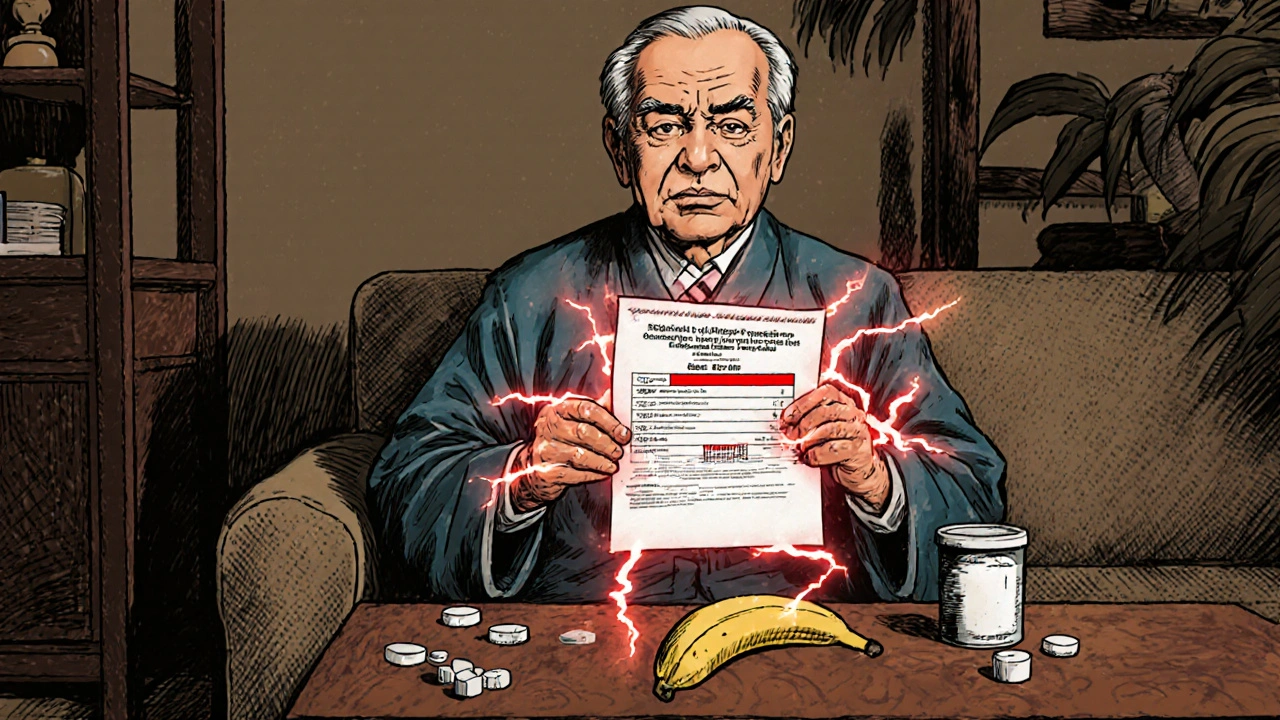Hyperkalemia: Causes, Risks, and How Medications Affect Potassium Levels
When your blood potassium levels climb too high, you're dealing with hyperkalemia, a condition where excess potassium in the bloodstream disrupts heart and muscle function. Also known as high potassium, it doesn’t always cause symptoms—but when it does, they can be life-threatening. Your kidneys normally keep potassium in check, but if they’re damaged or not working right, potassium builds up fast. This isn’t just a lab number—it’s a real risk to your heart rhythm, especially if you have chronic kidney disease, a long-term condition where kidneys slowly lose function or are on dialysis.
Many common medications can push potassium up, even in people with healthy kidneys. Drugs like ACE inhibitors, used to treat high blood pressure and protect kidney function, or spironolactone, a water pill often prescribed for heart failure, are known culprits. Even over-the-counter salt substitutes or certain herbal supplements can sneak in extra potassium. If you’re on any of these, your doctor should monitor your levels regularly. Hyperkalemia doesn’t wait for warning signs—it can silently trigger an irregular heartbeat or cardiac arrest.
It’s not just about what you take—it’s also about what you eat. People with kidney issues often need to limit foods like bananas, potatoes, spinach, and oranges. But many don’t realize how quickly these add up. Even small changes in diet or medication timing can swing potassium levels. That’s why managing hyperkalemia isn’t just about pills—it’s about daily habits, lab tests, and knowing when to speak up.
The posts on this page cover exactly that: how kidney disease affects electrolytes, which drugs raise potassium, what caregivers need to watch for, and how to avoid dangerous interactions. You’ll find real-world guidance on managing potassium through diet, medication choices, and monitoring—no fluff, just what works.

